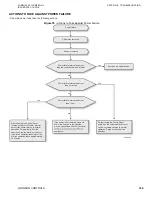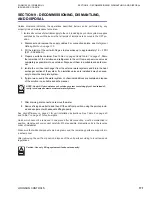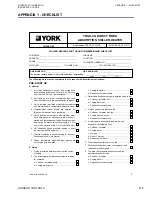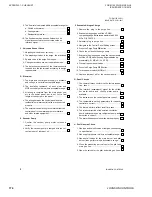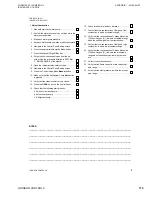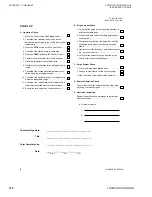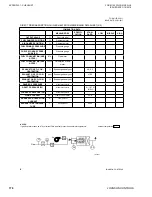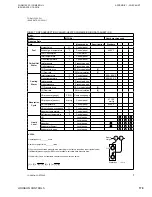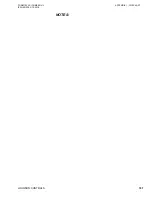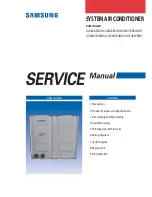
FORM 155.32-ICOM2.EN.UL
SECTION 9 - DECOMMISSIONING, DISMANTLING, AND DISPOSAL
ISSUE DATE:1/10/2018
JOHNSON CONTROLS
171
SECTION 9 - DECOMMISSIONING, DISMANTLING,
AND DISPOSAL
Unless otherwise indicated, the operations described below can be performed by any
properly trained maintenance technician.
1. Isolate all sources of electrical supply to the unit, including any control system supplies
switched by the unit. Make sure that all points of isolation are secured in the OFF po-
sition.
2. Disconnect and remove the supply cables. For connection points, see
3. Fill the interior of the unit with N2 gas to pressurize up to approximately 1.5 ~ 3PSI
(0.01~0.02 MPa.G.).
4. Prepare a suitable container. See
and
the remainder of the solution and refrigerant in the unit from each service valve as
completely as possible into a container. Dispose of them in a suitable and safe man-
ner.
5. Isolate the unit heat exchanger from the external water systems and drain the heat
exchanger section of the system. If no isolation valves are installed it may be neces-
sary to drain the complete system.
6. If glycol was used in the water system, or chemical additives are contained, dispose
of the solution in a suitable and safe manner.
7. After draining, disconnect and remove the water.
8. Remove fixing down bolts, and then lift the unit from position, using the points provid-
ed and equipment with adequate lifting capacity
See
for unit installation instructions. See
for unit weights.
Units, which cannot be removed in one piece after disconnection, must be dismantled in
position. Handle each component carefully. Where possible, dismantle units in the reverse
order of installation.
Make sure that while components are being removed, the remaining parts are supported in
a safe manner.
After removing the unit from position, dispose of the unit parts according to local laws and
regulations.
NOTE: Under NO circumstances should any system containing glycol be drained di-
rectly into domestic waste or natural water systems.
Caution: Use only lifting equipment if adequate capacity.













